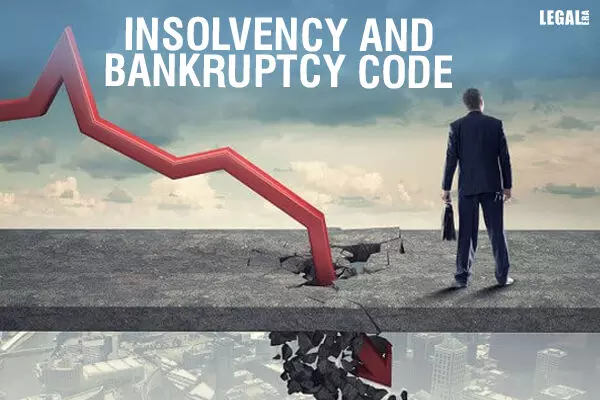- Home
- News
- Articles+
- Aerospace
- Artificial Intelligence
- Agriculture
- Alternate Dispute Resolution
- Arbitration & Mediation
- Banking and Finance
- Bankruptcy
- Book Review
- Bribery & Corruption
- Commercial Litigation
- Competition Law
- Conference Reports
- Consumer Products
- Contract
- Corporate Governance
- Corporate Law
- Covid-19
- Cryptocurrency
- Cybersecurity
- Data Protection
- Defence
- Digital Economy
- E-commerce
- Employment Law
- Energy and Natural Resources
- Entertainment and Sports Law
- Environmental Law
- Environmental, Social, and Governance
- Foreign Direct Investment
- Food and Beverage
- Gaming
- Health Care
- IBC Diaries
- In Focus
- Inclusion & Diversity
- Insurance Law
- Intellectual Property
- International Law
- IP & Tech Era
- Know the Law
- Labour Laws
- Law & Policy and Regulation
- Litigation
- Litigation Funding
- Manufacturing
- Mergers & Acquisitions
- NFTs
- Privacy
- Private Equity
- Project Finance
- Real Estate
- Risk and Compliance
- Student Corner
- Take On Board
- Tax
- Technology Media and Telecom
- Tributes
- Viewpoint
- Zoom In
- Law Firms
- In-House
- Rankings
- E-Magazine
- Legal Era TV
- Events
- Middle East
- Africa
- News
- Articles
- Aerospace
- Artificial Intelligence
- Agriculture
- Alternate Dispute Resolution
- Arbitration & Mediation
- Banking and Finance
- Bankruptcy
- Book Review
- Bribery & Corruption
- Commercial Litigation
- Competition Law
- Conference Reports
- Consumer Products
- Contract
- Corporate Governance
- Corporate Law
- Covid-19
- Cryptocurrency
- Cybersecurity
- Data Protection
- Defence
- Digital Economy
- E-commerce
- Employment Law
- Energy and Natural Resources
- Entertainment and Sports Law
- Environmental Law
- Environmental, Social, and Governance
- Foreign Direct Investment
- Food and Beverage
- Gaming
- Health Care
- IBC Diaries
- In Focus
- Inclusion & Diversity
- Insurance Law
- Intellectual Property
- International Law
- IP & Tech Era
- Know the Law
- Labour Laws
- Law & Policy and Regulation
- Litigation
- Litigation Funding
- Manufacturing
- Mergers & Acquisitions
- NFTs
- Privacy
- Private Equity
- Project Finance
- Real Estate
- Risk and Compliance
- Student Corner
- Take On Board
- Tax
- Technology Media and Telecom
- Tributes
- Viewpoint
- Zoom In
- Law Firms
- In-House
- Rankings
- E-Magazine
- Legal Era TV
- Events
- Middle East
- Africa
NCLAT: Individual Vote of Each Homebuyer Required for CIRP Withdrawal under Section 12A of IBC

NCLAT: Individual Vote of Each Homebuyer Required for CIRP Withdrawal under Section 12A of IBC
The National Company Law Appellate Tribunal ("NCLAT"), Principal Bench, chaired by Justice Ashok Bhushan and with Shri Barun Mitra (Technical Member), ruled that when voting on Corporate Insolvency Resolution Process (CIRP) withdrawals under Section 12A of the Insolvency and Bankruptcy Code (IBC), each homebuyer's vote must be counted individually rather than as a collective class of financial creditors.
Section 12A of the Insolvency and Bankruptcy Code (IBC) outlines the statutory provisions governing the withdrawal of applications admitted under sections 7, 9, or 10. It specifies that the adjudicating authority may permit the withdrawal of an application admitted under sections 7, 9, or 10 upon an application made by the applicant, with the approval of ninety percent of the voting share of the committee of creditors.
On March 4, 2021, Oriental Bank of Commerce initiated a Corporate Insolvency Resolution Process (CIRP) against Sidhartha Buildhome, a real estate company, designating it as the corporate debtor.
On February 23, 2022, Form G was published, and subsequently, two resolution plans were received. Among these plans, the proposal submitted by the director of the corporate debtor to withdraw the Corporate Insolvency Resolution Process (CIRP) garnered support from 40.15% of homebuyers. Conversely, it faced opposition from 29.20%, and 11.08% abstained during the discussion and voting process.
The Resolution Professional (RP) observed that only 52.57% of financial creditors had voted in favour of the proposal, failing to meet the mandated 90% threshold under Section 12A of the Insolvency and Bankruptcy Code (IBC). As a result, the RP declined the Section 12A proposal.
In response, the authorized representative of the homebuyers filed an application (IA No. 753 of 2023), challenging the RP's decision before the National Company Law Tribunal (NCLT).
Subsequently, the NCLT allowed the application (IA No. 753 of 2023) and held that, since more than 50% of the votes were in favour of the 12A proposal, the RP should have regarded it as 100%, considering that financial creditors are treated as a single class.
Aggrieved by the Order of NCLT allowing the withdrawal proposal under Section 12A, both the RP and homebuyers filed appeals before NCLAT.
The NCLAT overturned the NCLT's decision in IA No. 753 of 2023, considering it untenable, and reinstated the Corporate Insolvency Resolution Process (CIRP) proceedings against the corporate debtor.
The NCLAT observed that the NCLT failed to consider the proviso to sub-section (3A) of Section 25A. It determined that in calculating votes concerning the 12A proposal, the voting procedure must comply with Section 25A (3A) proviso read with Section 25A(3).
The NCLAT provided further clarity on the interpretation of Section 12A, affirming that the voting by each homebuyer, representing a creditor in the class, should be calculated based on their individual voting share. Furthermore, it stipulated that the cumulative vote shares of the creditors in the class, along with any other financial creditors, must collectively amount to at least 90% for the 12A proposal to be deemed passed.



